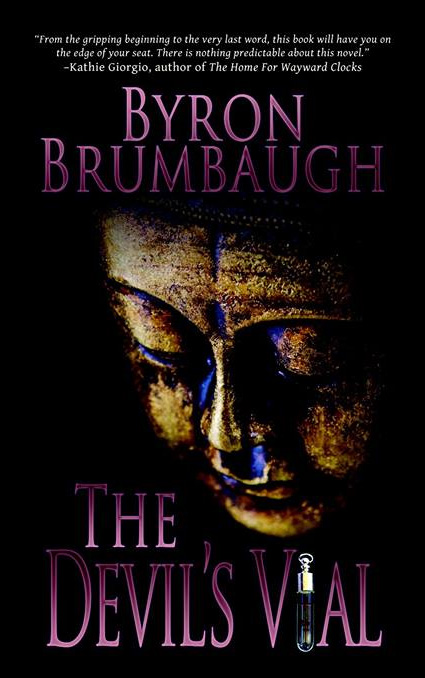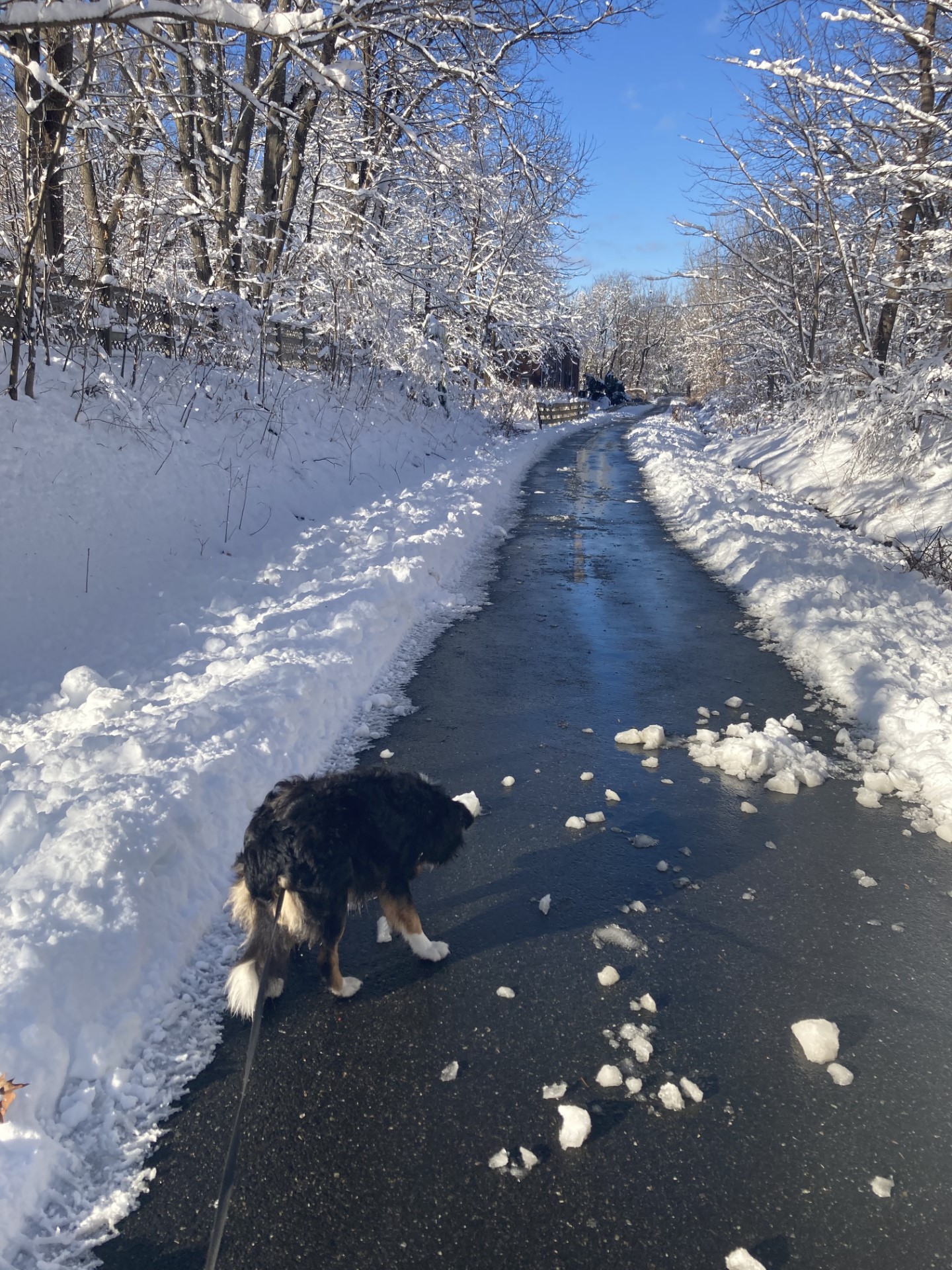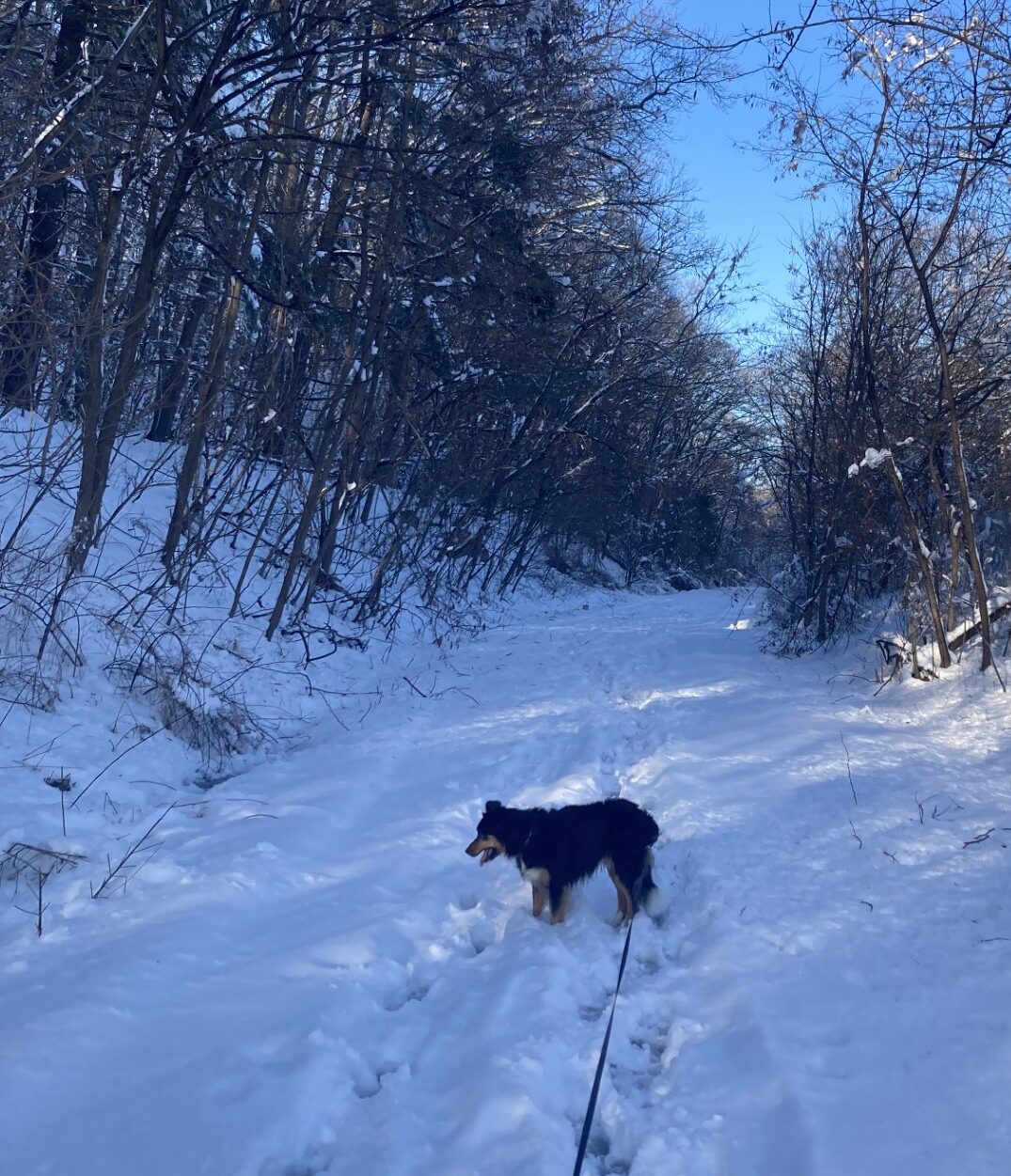History is not a burden on the memory but an illumination of the soul.
-John Dalberg-Acton
Well, we finally got our first snow of the season. Twelve inches was dumped on us overnight three days ago. It was wet and heavy, bending some branches way down where we had to walk and even toppling more than one tree completely over. The temperatures went well down into the teens, making me bundle up in my parka and put gaiters on over rain pants. The worst part was that it took so much work to trudge along, blazing a trail through all that white. My seventy-five year old body complained a lot about it. Not only was I huffing and puffing, with heart pounding, I was dripping in sweat. Waldo, bless his young heart, porpoised through it having a grand old time.
Then, yesterday, the temperature rose into the forties and it rained. Today, the high was fifty-one degrees. Fifty-one degrees! Most of the snow is now gone, replaced by slushy swamps in the low spots and water running in the ditches. There is, however, some snow left in shadowy places and where plows piled it up while clearing the streets. On the rail-trail, there are stretches where there’s patches of squishy snow/slush/water, but most of that can easily be navigated around. Except, of course, for Waldo, who doesn’t seem to mind getting his paws (and his fur) wet. He even finds beds of the stuff to roll in. Ah, well, I’m used to the smell of wet dog this time of year.
We haven’t gone far down the trail and we come across an “elderly” man and his wife out for a stroll. With all the construction going on, conversation soon rolls around to how much things have changed in Marlborough. In just the five years Waldo and I have been walking down here, there’s been townhouses built and elderly housing complexes put up in places that used to be grassy fields and stands of trees and bushes. And now there’s the repaving of a city parking lot, the making of a park on the landfill by Fort Meadow Reservoir and the apartment complex going up at the beginning of the rail-trail.
It turns out the man is a retired carpenter who spent all of his life in Marlborough. I ask him if he remembers when the train still ran where we’re walking. He says he does. Deisel engines pulled passenger cars in the fifties and freight in the sixties. Where the trail crosses Fitchburg Street, the railroad ran over a bridge with a stone abutment. The passage beneath it was so narrow, only one car could pass through it at time. Most of the area that now has houses and businesses, like Boston Scientific, was all open field and forest. Marlborough Hospital, whose parking lot can be seen from the trail, was a single small building. The railroad tracks, back in his childhood, ran into town, well beyond where the rail-trail now ends, and there was a station behind city hall.
He remembers when the landfill, where the park is to be built, was still open and used as a dump — it was closed in the eighties. He even remembers the guy that ran it. He smoked a big cigar while using a bulldozer to bury whatever was left to rot. As we walk along, he points out this old building was a factory and that was a business of some sort. It turns out, he was hired to work on the apartment complex where Waldo and I live, back in the seventies. He remembers when it was an orchard before that.
I was fascinated to hear about how the landscape and ambience around here has changed during his lifetime. And that change is accelerating. Living long enough to remember how things were and how they morphed into what they are now, adds a sense of continuity to the world. The universe is not just a collection of random events grouped together in meaningless clumps. The study of history was something I never really liked as a kid, but now that I’m older, I’ve learned to appreciate it. Not as a sequence of dates and events, but the flow of the human experience as it evolves over time. It makes me feel like I can connect the dots, tell a kind of story, without too many plot holes, that connects where we were to where we are now.
I’m looking forward to meeting this man and his wife out here again, and learn more about how it felt to live here, back in the day. For now, though, we each must go our own way.
And I have a doggy to dry out.



